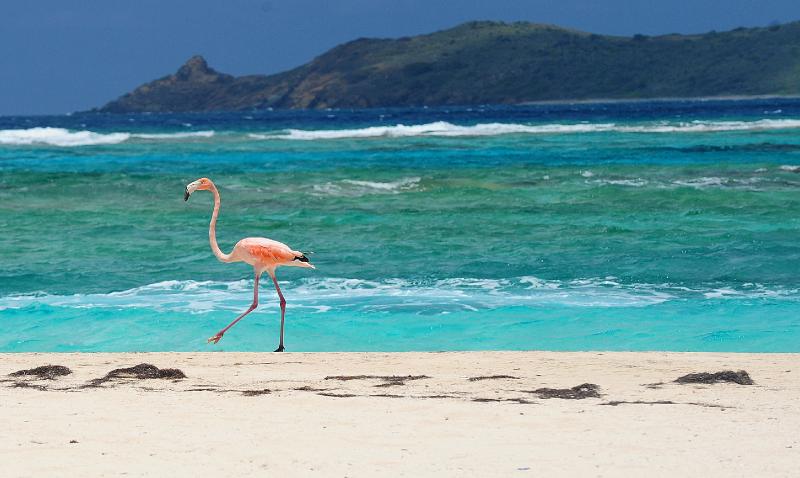Why UK’s network of ‘Treasure Island’ tax havens is in trouble



The United Kingdom’s exotic network of “Treasure Island” tax havens could be facing the biggest threat to its existence in half a century after the United States and its allies pledged to squeeze more tax out of large, profitable multinational companies.
The often distant islands of Britain’s former empire have served as the premier jurisdiction for everyone from cash-rich Chinese officials to Russian oligarchs to Western firms to hedge funds seeking lower taxes – or complete secrecy.
Some of these 14 British Overseas Territories - including Bermuda, the British Virgin Islands, the Cayman Islands, Gibraltar and Turks and Caicos Islands - started to live off a blend of beach tourism and exotic finance that activists say left both locals and distant taxpayers short-changed .
The United Kingdom’s exotic network of “Treasure Island” tax havens could be facing the biggest threat to its existence in half a century after the United States and its allies pledged to squeeze more tax out of large, profitable multinational companies.
The often distant islands of Britain’s former empire have served as the premier jurisdiction for everyone from cash-rich Chinese officials to Russian oligarchs to Western firms to hedge funds seeking lower taxes – or complete secrecy.
But a tax deal hashed out by Group of Seven (G7) finance ministers in a grand 19th-century mansion near Buckingham Palace is likely to hit the UK’s treasure islands hard after decades of dodging attempts by major economies to claw back revenue.
“This is a turning moment,” said Alex Cobham, chief executive of the Tax Justice Network, an advocacy group that campaigns against tax avoidance. “We’ll look back in five or 10 years and say: ‘Yes, that is when it shifted.'”
“There is a narrative shift – this active commitment to end the race to the bottom,” said Cobham, though he accepted that the specific details could still be poorly drafted and that politicians have for years promised to crack down.
The world loses out on $427bn a year due to corporate and personal tax evasion, according to Tax Justice Network estimates. About $245bn of that is lost to multinationals shifting profit into tax havens and the other $182bn is lost to wealthy individuals squirrelling away assets.
If the details of the G7 pledge become an enforceable reality, then global flows of hidden profits could be redirected in one of the most fundamental ways since the days when the British empire crumbled in the 20th century.
As Britain’s power collapsed, some of its possessions became self-governing territories that were not part of the United Kingdom but that came under British defence agreements and preserved strong links with London.
Some of these 14 British Overseas Territories – including Bermuda, the British Virgin Islands (BVI), the Cayman Islands, Gibraltar and Turks and Caicos Islands – started to live off a blend of beach tourism and exotic finance that activists say left both locals and distant taxpayers short-changed.
British tax havens are responsible for 29 percent of the $245bn in tax the world loses to corporations, according to Tax Justice Network, which ranks BVI, the Cayman Islands and Bermuda as the top three enablers of corporate tax abuse on the planet.
The finance ministries of the BVI, Cayman Islands and Bermuda did not immediately respond to requests for comment.
Those British islands worst hit by the looming rerouting of corporate profits face a reckoning that will undermine the business model they have lived off for decades and that could lead to high unemployment, said Cobham.
Essentially, two rival and intertwined tax haven networks developed: a British lattice and a more continental European-flavoured one that includes Ireland, Cyprus, Luxembourg, Malta the Netherlands and Switzerland.
The G7 tax deal will make corporate tax havens much less attractive as it gives countries the right to add a top-up tax on companies’ profits in countries with tax rates lower than the global minimum.


This is additional to an article posted earlier re a 15% tax agreed to by the G-7.
Good news.
I was a little surprised they did not mention the Panama Papers. Did you ever see The Laundromat?
Glad to hear this
About $245bn of that is lost to multinationals shifting profit into tax havens and the other $182bn is lost to wealthy individuals squirreling away assets.
It's called tax avoidance, which is legal. What's good in allowing governments to confiscate corporate and personal wealth. Governments can't be counted upon to do the fair and proper thing
Some call it tax evasion which is illegal.
If it was "illegal", they would have been prosecuted. But, as it is and was simply legal tax avoidance, there is no law(s) being broken therefore no prosecution.
And if wishes were nickels, everyone I'm sure would be multimillionaires too.
Little is being said about the hidden aspects of this purported agreement. First, the proposed tax is a minimum. Second, the proposed tax would only apply to the nations that agreed to it. Third, countries like China would likely tell them to pound sand. Fourth, there is a little element of this agreement that proposes an additional tax on companies earning more than 10% profit, so I need to ask what country is willing to limit the profitability of any of it's companies.